Setting up your trumpet for optimal performance is like giving it a pep talk – get it right, and you’ll be playing like a virtuoso in no time.
Whether you’re a beginner learning the ropes, an intermediate player fine-tuning your skills, or an advanced player looking for that edge, this guide will help you transform your trumpet into a cooperative companion.
Decoding the Jargon

Trumpet lingo might seem like another language.
- Embouchure: That’s a fancy word for how you shape your lips and mouth on the mouthpiece. Mastering this is key to hitting those high notes without resembling a tomato.
- Beats per Minute (BPM): Refers to the piece’s speed you’re playing. It’s not a measure of how fast you can snack during practice breaks.
- Valves and Slides: Not things in a plumber’s toolkit. Valves change the note by altering the air path, and slides adjust tuning. Practice moving them swiftly; soon, you’ll be sliding and valving like nobody’s business!
- Intonation: It is how in tune your notes are. It’s critical unless you want ripe tomatoes thrown your way at performances.
Understanding these terms ensures no one baffles you with trumpet talk, and you’ll sound like a well-seasoned pro.
Cleaning and Maintenance

A regular cleaning keeps the trumpet looking spiffy and functioning like a dream. After each practice session, wipe down the trumpet’s exterior with a soft cloth. This helps remove fingerprints and keeps it shiny.
A monthly date with the mouthpiece and warm, soapy water is necessary. Use a mouthpiece brush to ensure it’s spick-and-span. Once a month, a more thorough cleaning of the entire trumpet is ideal.
Disassemble the instrument and soak parts in lukewarm, soapy water, avoiding the valves. Rinse thoroughly and dry each component entirely before reassembling.
Ultra-Pure Trumpet Care Kit
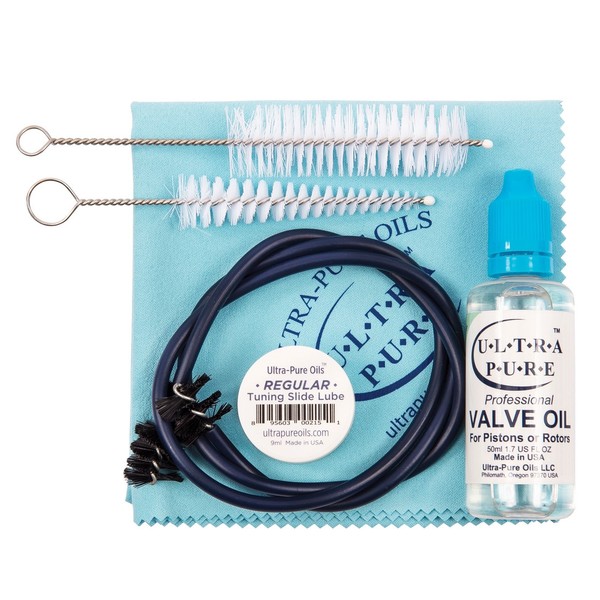
DESIGNED FOR: trumpets, cornets, and flugelhorns
COMES WITH: with an instruction manual
FEATURES: Includes professional valve oil acclaimed worldwide by artists With flexible snake to clean difficult areas Brushes have plastic-coated tips to prevent scratching
- Easy to use
- Includes everything you need to maintain your instrument
- Professional valve oil is used by world-class artists
- None
When you click ‘Check Price’, you’ll see there are loads of great places to buy this item. Our personal favorite is Sweetwater for the US, and Thomann and Gear4Music for the UK & Europe.
They are the largest music retailers, with excellent customer service, competitive prices, really fast shipping, and the longest guarantees.
The professional musician who wrote this article combined many things,
from the product build, manufacturer’s reputation through to feedback
from other users, to create our famous TedScore™.
Dealing with the Gunky Bits
Dealing with the gunky bits is like tackling a dragon head-on – necessary and satisfying.
Those bits of saliva and grime can accumulate, making the trumpet sound like an old croaking frog.
Start by opening the main water key and gently blowing through the trumpet to expel moisture. Avoid blowing too hard and creating a geyser!
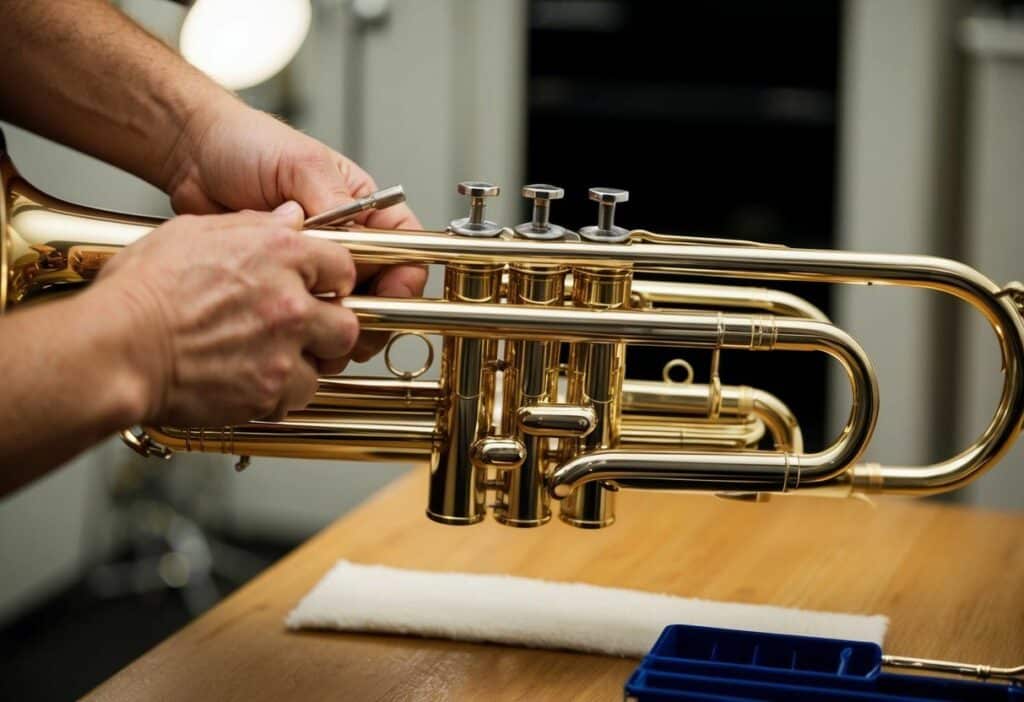
For the slides, remove them gently and wipe away any moisture with a dry cloth. If things are getting stubborn, use a snake brush to thread through and clear the inner tubing. Remember, gunky build-up loves to hide in nooks and crannies, so stay vigilant.
Oiling the Valves: Slippery When Wet
Oiling the valves is akin to feeding a content cat – necessary for smooth purrs.
Begin by removing each valve, one at a time, so you don’t misplace them. Apply a few drops of valve oil at the valve casing and gently slide the valve up and down to spread it evenly.
Don’t be stingy, but don’t drown the valve either! Reinsert each valve, ensuring it clicks into place.
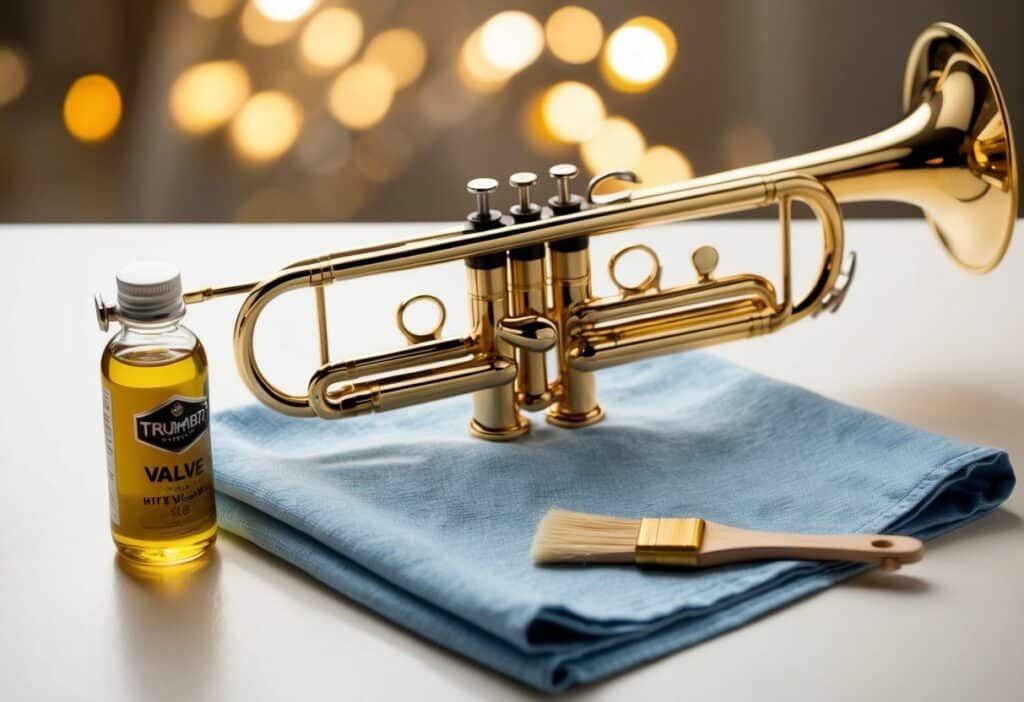
Properly oiled valves make for effortless play, preventing awkward moments of stuck notes or clunky transitions—an easy-to-follow oiling routine guarantees fewer hiccups and a lot more musical joy.
Bach Valve Oil

DESIGNED FOR: Class-leading valve oil
COMES WITH: locking cap to reduce leaks
FEATURES: Synthetic oil mixed with refined Swiss clock oil
- Easy to apply with instant results
- Comes with a locking cap to reduce leaks
- Also contains petroleum distillates
When you check the price above, you’ll see there are loads of great places to buy this item. Our personal favorite is Gear4music.
It is the largest music retailer in the UK and fast becoming the most respected online music shop in the US too. Their customer service is excellent, they have competitive prices, really fast shipping, and usually have the longest guarantee.
Most professional musicians use Gear4music, so there is no reason why you shouldn’t too!
The professional musician who wrote this article combined many things,
from the product build, manufacturer’s reputation through to feedback
from other users, to create our famous TedScore™.
Tuning
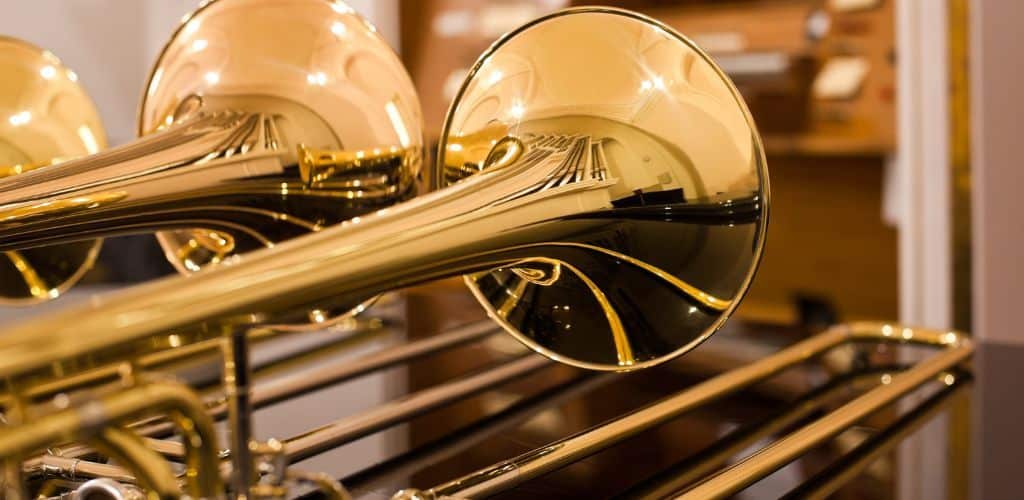
Every excellent performance begins with a well-tuned trumpet. Tuning is like aligning your musical chakras to achieve a harmonic state. Start with a trusty digital tuner; it’s your best mate in perfecting the pitch.
First, warm up your trumpet by playing a few notes. Cold metal can be as unpredictable as a cat on a hot tin roof. Once it’s warmed, blow a steady note and let the tuner guide you.
Pro Tips:
- Adjust the main tuning slide.
- Fine-tune with the smaller slides for each valve.
- Avoid quick, jerky movements; subtlety is key.
Remember, patience is essential. Consistent small adjustments will create the most euphoric sound.
Taming the Trumpet:
Consistency and Endurance
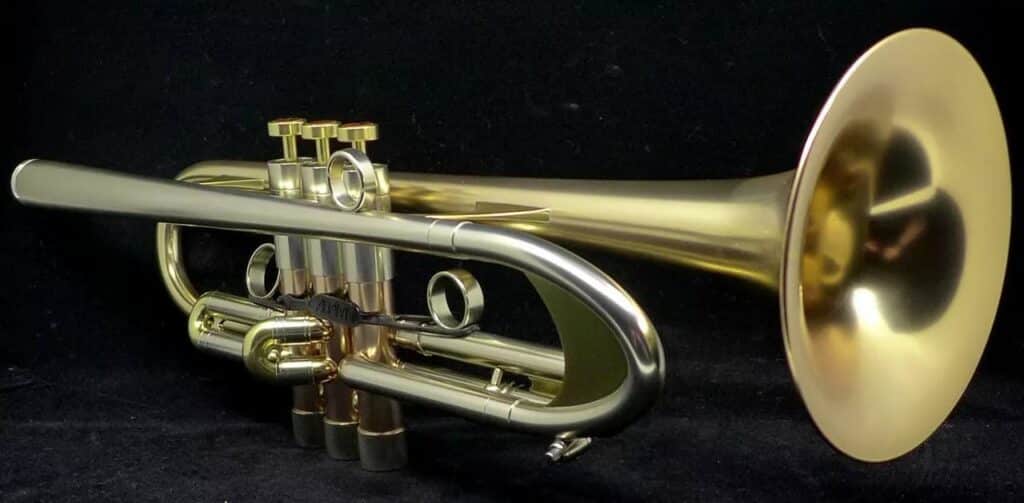
So there you have it!
Setting up your trumpet for optimal performance is more like a fun treasure hunt than anything else. Always keep a sharp ear out for those little tweaks that make a big difference.
In a nutshell:
- Check Mouthpiece Fit: Not too tight, not too loose.
- Valve Maintenance: Smooth as butter is what you’re aiming for.
- Cleaning: A sparkling trumpet is a happy trumpet.
- Lubrication: Oiling valves is crucial; do it regularly.
- Adjust Slides: Properly adjusted slides help with tuning.
These simple tips and tricks let you keep your trumpet in top shape and enjoy a more satisfying playing experience.











Really digging the metaphor usage, Cai Isfryn. Connecting instrument maintenance to such vivid images really brings home the importance and the satisfaction of getting hands-on with your instrument. Makes me think, there’s a lot more to playing than just hitting the right notes. It’s about truly knowing and caring for our instruments. That bit on dealing with gunky bits? I laughed but also realized it’s a task I’ve neglected for too long. Time to face my own dragon.
Oiling the valves like feeding a content cat, huh? Guess that makes my trumpet a very needy feline. It’s always asking for more!
didn’t know oiling was like feeding a cat haha, makes me look at my trombone differently now.
This is such a useful guide, especially for young musicians who are just learning about instrument maintenance. I’ll definitely be sharing this with my students. The analogies make the tasks feel less daunting and more relatable.
Is it tough to learn how to tune the trumpet yourself? Feels daunting tbh.
Didn’t know you gotta clean it that much. Makes sense though.
Wait, how often is ‘that much’?
Oh yeah, keeping it clean makes a huge difference in sound. Worth the effort.
Cai, loving the way you simplify the complex topic of trumpet maintenance. Especially the part about oiling the valves, really resonated with the necessity of keeping things smooth. It’s critical, yet not everyone gets it right. Anyone tried synthetic oils?
Cai Isfryn, thanks for the insights on cleaning brass instruments. I’ve always wondered if there’s a specific type of oil that works best for the valves. I’ve used a few different brands, but I’m curious if there’s something out there that’s considered the top choice among professionals. Also, how often do you recommend oiling for someone who plays daily?